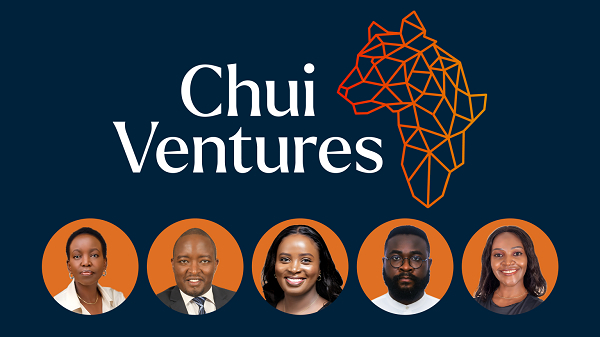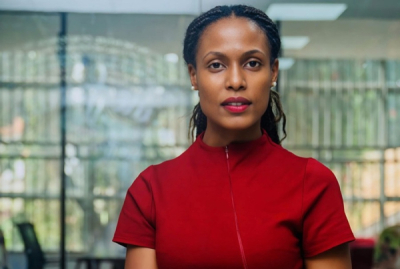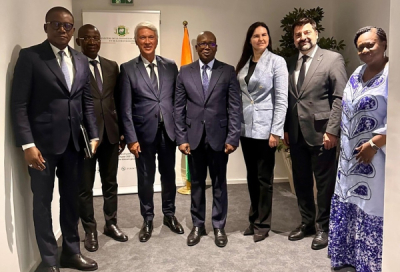- evolve, founded in 2014 by Richard Migambi, supports public institutions and companies with structured data strategies.
- The firm designs locally developed digital solutions that organise data flows and build analytical dashboards.
- Migambi built his career across the UK and Rwanda, including work for Hasbro Europe, the Rwandan Ministry of Finance and the World Bank.
Richard Migambi uses structured data to improve the functioning of organisations. Through his solution, he proposes a new way of organising information to strengthen decision-making and the implementation of policies.
Migambi, a Rwandan entrepreneur in public-sector digital transformation, is the founder and chief executive of evolve, a Rwandan company that helps organisations use structured data to improve decisions and support innovation.
evolve, founded in 2014, presents itself as a digital-transformation agency and technology partner working with companies, public administrations and organisations engaged in digital reforms. The company develops locally designed technological solutions that respond to needs identified in the field by mobilising national expertise and an impact-driven approach.
The firm builds its value proposition around a “data strategy” offering aimed at organising and exploiting the potential of internal data. evolve supports clients as they define adapted data governance, structure information flows and deploy analytical dashboards that convert data into management tools.
The company operates across the entire data-management cycle, including collection, security, organisation and sharing. This structuring aims to make information reliable, accessible and usable for teams while reducing systemic fragmentation that often slows digital-project efficiency.
evolve also develops customised dashboards and analytical environments tailored to each organisation. By making key indicators visible and usable daily, the tools enable faster and more coherent decision-making aligned with operational priorities.
Before founding evolve, Migambi created 37 Software Solutions in 2008 in the United Kingdom, a software-development and consulting agency for small and medium-sized companies seeking to structure their e-business strategies. He also worked there as a software developer until 2014.
He earned a bachelor’s degree in database technologies in 2006 from the University of Portsmouth and a master’s degree in software engineering in 2010 from the University of Southampton.
Migambi began his career in 2002 in the data-processing department of Velindre NHS Trust Hospital in Cardiff, Wales. In 2003, he joined Churchill Insurance Company as a customer adviser. In 2011, he became a software developer at Hasbro Europe in London, the international toy and entertainment company.
From 2015 onward, he served as electronic procurement project manager at the Rwandan Ministry of Finance. Between 2021 and 2023, he worked as a consultant on the implementation of Burkina Faso’s electronic public-procurement system for the World Bank.
This article was initially published in Frenbch by Melchior Koba
Adapted in English by Ange Jason Quenum
OceanHub Africa has opened applications for the seventh edition of its 12-month acceleration program, which will support up to twenty-four African impact startups focused on ocean preservation.
Selected startups will receive a mix of in-person and remote support, access to an international network of experts, investors, and customers, and various service and software benefits. Applications are open until December 30.
The Gabon chapter of the Congo Digital Economy Summit (Codes Africa) will host a regional meeting on cooperation, interoperability, and digital sovereignty in Central Africa on Thursday, December 4, at the Radisson Blu in Libreville.
The event, backed by the Association of Central African Telecommunications Regulators and consulting firm Deloitte, will bring together public- and private-sector leaders to discuss key digital issues.
- Ugandan entrepreneur leads Kolaborate, a platform linking African talent to global firms.
- The start-up offers training, verified profiles, and BPO services powered by AI.
- Kolaborate helps professionals access higher-paying remote digital work.
Pearl D. Gakazi is a Ugandan tech entrepreneur and the founder and CEO of Kolaborate, a start-up created to connect African talent with global digital job markets.
Founded in 2022, Kolaborate builds a direct bridge between companies around the world and African professionals specialized in tech, data, design, digital marketing, and content creation. The platform enables companies to assemble tailor-made remote teams using verified and supported profiles tailored to specific needs, whether developing a product, managing data, or running daily digital operations.
For talent, Kolaborate goes beyond matchmaking. The start-up has created an academy and training pathways designed to align local skills with international standards, especially in high-demand digital careers. Trained professionals then gain access to remote missions and jobs that offer higher pay than most local opportunities, while allowing them to remain in their home countries.
For companies, Kolaborate provides a service model that combines flexibility, operational quality, and cost efficiency. In addition to its talent network, the start-up develops business process outsourcing (BPO) services focused on data management and digital operations, allowing client organizations to delegate selected tasks while maintaining strong oversight. The platform uses artificial intelligence tools to refine matching, speed up recruitment, and secure collaboration.
Alongside her responsibilities at Kolaborate, Pearl D. Gakazi is also business development manager at Prism Marketing Ltd, a Ugandan agency specializing in marketing and sales.
She holds a bachelor’s degree in marketing from Makerere University, obtained in 2013, and a master’s degree in business, management, marketing, and related support services from Heriot-Watt University in Scotland, earned in 2016.
Gakazi began her career in 2010 as a wholesale sales supervisor at Fresh Cuts Uganda, a meat processing company. In 2013, she became a franchise business consultant at RE/MAX Uganda, a real estate company. In 2017, she joined the business development department of Yetu Credit Finance, active in microfinance. Between 2020 and 2023, she worked as a business adviser at Money Market Gurus, a financial firm.
Melchior Koba
- Officials discuss collaboration on digital government, AI, and cybersecurity.
- Azerbaijan showcases its MyGov super-app and national digital strategy.
- Senegal’s New Deal aims to invest $1.7 billion to modernize public services.
Senegal and Azerbaijan are considering stronger cooperation in the digital sector. On November 25, on the sidelines of the World Telecommunication Development Conference, Senegal’s minister of Communication, Telecommunications and Digital, Alioune Sall, met with Farid Osmanov, president of the Innovation and Digital Development Agency (IDDA), to explore potential areas of technological partnership.
Rencontre entre le MCTN et l’IAAD d’Azerbaïdjan : vers une coopération numérique renforcée
— Ministère Communication - Télécoms et Numérique (@mctngouvsn) November 25, 2025
En marge de la CMDT-25, le Ministre de la Communication, des Télécommunications et du Numérique Alioune SALL a rencontré M. Farid Osmanov, pic.twitter.com/KsUaSSX50U
During the discussions, Osmanov presented several solutions developed by the agency, including the MyGov super-app, used by more than 2 million citizens, as well as Azerbaijan’s strategy integrating AI, cybersecurity, and digital identity. He also highlighted Digital Bridge, a system that connects public platforms with private companies, including banks.
Minister Alioune Sall reaffirmed Senegal’s priorities in digital transformation, including modernizing state services, developing new digital offerings, and improving infrastructure. Both parties agreed to move toward a formal partnership framework focused on digital government, artificial intelligence, and cybersecurity.
The meeting comes as both Dakar and Baku accelerate their digital agendas. Senegal’s New Deal, launched in February 2025, plans about $1.7 billion in investments to modernize the administration and support the digital economy. In Azerbaijan, the IDDA leads the national digital development strategy and is expanding public digital solutions.
A structured partnership would offer benefits to both countries. Senegal could draw on Azerbaijan’s experience in administrative digitalization, digital identity, and other areas, given Azerbaijan’s advanced status in e-government, with a United Nations index score of 0.7607 out of 1. For its part, Azerbaijan could strengthen its presence in West Africa and promote its digital solutions in a growing market.
Samira Njoya
- Ivorian officials meet a Russian delegation to discuss digital cooperation.
- Talks focus on technopoles, AI integration, and public-service digitalization.
- A visit to VITIB aims to deepen potential collaboration on innovation projects.
As part of its digital transformation strategy, the Ivorian government aims to modernize public services and build a strong innovation ecosystem. Collaboration with experienced partners is seen as essential to accelerate these ambitions.
Raymond Assoua, chief of staff to the minister of Digital Transition and Digitalization, met on Monday, November 24, in Abidjan with a delegation from the Skolkovo Foundation led by Russia’s ambassador to Côte d’Ivoire, Alexey Saltykov. The meeting is part of a cooperation program designed to strengthen exchanges between Côte d’Ivoire and Russia in digital technology, innovation, and ecosystem development.
Discussions covered several strategic areas, including the development of technopoles, the integration of artificial intelligence in both public and private sectors, and the acceleration of administrative digitalization. The Russian delegation also presented Skolkovo’s expertise in building innovation ecosystems, a model that could support Côte d’Ivoire’s ambitions for tech-driven urban development.
During the meeting, concrete collaboration opportunities were identified between the Skolkovo Foundation and VITIB, the Ivorian technology park in Grand-Bassam. The director general of VITIB outlined existing infrastructure and ongoing projects, opening the door to future initiatives in start-up incubation, applied research, and sovereign digital solutions.
The visit comes one day after Côte d’Ivoire’s National Assembly approved a CFA83.27 billion (about $146 million) budget for 2026 to support the country’s digital transformation. The funding targets modernization of the postal sector, implementation of universal electronic communications service, and development of the digital economy.
The Skolkovo Foundation is one of Russia’s main innovation hubs, specializing in supporting tech start-ups, developing technopoles, and conducting AI-related research through its partnership with the Skoltech Institute. Its expertise could help Côte d’Ivoire with talent development and the rollout of pilot projects in innovation and digital services.
No formal agreement has been announced yet. However, the delegation will visit VITIB on November 25 to continue technical discussions and explore partnership opportunities.
Samira Njoya
- Government plans lower Internet costs and expanded rural fiber coverage.
- A new national data center, Digital Delta, will open on November 25.
- Reforms support a wider digital strategy as Botswana ranks 6th in Africa for ICT.
One year after his appointment as Botswana’s minister of Communications and Innovation, David Tshere presented on Thursday, November 20, the main priorities of his roadmap. He emphasized the government’s ambition to make digital transformation a driver of growth, inclusion, and competitiveness.
Among the key announcements, the minister revealed a significant reduction in Internet and mobile data costs to make digital access more affordable for citizens and businesses. He also introduced a plan to extend fiber-optic infrastructure to rural and underserved areas to improve national connectivity and promote digital inclusion.
Minister Tshere confirmed the imminent commissioning of the Digital Delta data center, with its official opening set for Tuesday, November 25, in Gaborone. This state-of-the-art facility aims to strengthen national digital capacity, host critical cloud services, and support government and private-sector applications in areas such as education, health, and public administration.
The roadmap forms part of a broader national strategy that includes the expanding 1Gov government platform and the adoption of modern digital legislation covering cybersecurity, data protection, and technological innovation. Botswana also plans to commercialize data from the BOTSAT-1 satellite to support agriculture, environmental management, and smart infrastructure.
Results from earlier initiatives highlight the country’s progress. According to the 2025 edition of the International Telecommunication Union’s “Measuring Digital Development – ICT Development Index,” Botswana ranks sixth in Africa with a score of 82.1 out of 100, reflecting advances in ICT use and the development of a strong digital ecosystem. DataReportal estimates that 2.09 million people were using the Internet in Botswana at the end of 2025, representing an 81.4 % penetration rate.
Samira Njoya
- Government launches a free digital platform for all Official Journal editions.
- The portal offers authenticated laws, decrees, and regulations since 1959.
- The project supports wider digital reforms under the World Bank–funded WARDIP.
The Mauritanian government inaugurated on Monday, November 24, a new digital portal dedicated to the Official Journal, now freely accessible to the public. The initiative aims to modernize access to legal texts, strengthen transparency in public information, and simplify consultation of laws in force, gathering more than 30,000 authenticated legislative and regulatory documents.
The portal centralizes all editions of the Official Journal since 1959, along with a selection of laws, decrees, international conventions, and other regulatory texts. Available in Arabic and French, it features an advanced search engine that allows legal professionals, investors, researchers, public administrations, and citizens to access authenticated and updated versions quickly.
The Official Journal is the primary legal source confirming the existence, entry into force, and authenticity of state-issued texts. Its digitization responds to the growing need to modernize procedures, reduce publication delays, and ensure easier access to legal information in a context of rapid digital transformation.
The project is part of the West Africa Regional Digital Integration Program (WARDIP – Mauritania), financed by the World Bank, which supports the country’s administrative modernization. It also includes a training program for staff at the General Secretariat of the Government, covering digital archiving, legal database management, and code updates to ensure the platform’s reliability and long-term sustainability.
Beyond the digitization of the Official Journal, WARDIP also plans the creation of a public-service interoperability framework, the development of a government cloud, improvements in broadband access, and support for innovation and start-ups. These actions aim to create an environment conducive to digital public services and economic development.
The launch of the Official Journal portal is expected to improve access to law for citizens and courts, strengthen public-sector transparency, secure the regulatory environment for investors, and consolidate the rule of law. With more than 30,000 authenticated texts covering over six decades, the platform marks a major step in modernizing Mauritania’s legal system and aligning the country with international best practices in digital governance.
Samira Njoya
Applications are now open for the tenth cohort of the develoPPP Ventures program, aimed at Kenyan startups that already generate revenue. Selected companies can receive up to €100,000 (about $113,000) in non-dilutive financing, along with technical support, to accelerate their growth and increase their social, economic or environmental impact in the region.
The Nigerian startup Konnadex has received a $20,000 grant from the Lisk protocol to accelerate the development of its stablecoin payment portal for merchants. The platform offers on-chain invoicing, payment links and automated reconciliation to streamline cryptocurrency settlements. The funding strengthens the company’s market credibility but remains only an early step toward scaling.
More...
M-KOPA Kenya, a subsidiary of M-KOPA Holdings, said it has extended $1.6 billion in credit to customers in the country, largely through smartphone financing. The company says it has reached 4.8 million customers over fifteen years, making it a major source of credit for low-income households.
- Gabon to digitize payments for online visa applications via mobile money
- Move supports broader push to modernize public services and reduce delays
- Part of national strategy to boost digital economy and cut reliance on oil
The Gabonese government is preparing to digitize payments for its online visa application system. The subject was discussed on Friday, November 21, during a meeting between Mark Alexandre Doumba (photo, center), Minister of Digital Economy, Digitalization and Innovation, and mobile money operators Airtel Money, Moov Money and Clikpay Money.
According to the ministry, enabling electronic payments is an “essential step toward providing a fully digital service that is faster, smoother and more transparent.”
The initiative fits into Gabon’s broader digital strategy. The government aims to make digital technology a core driver of socioeconomic development and to reduce the country’s dependence on extractive industries. In September, Gabon adopted a new legal framework to regulate and accelerate the digital transformation of public administration.
Digitizing payments is a key part of this modernization effort. In late October, authorities launched a pilot to digitize social and tax contributions, with a full rollout scheduled for January 2026. Earlier this year, Gabon also partnered with Visa to develop digital solutions for modernizing tax collection, automating fund disbursements and deploying a secure digital identity.
Officials say that digitizing payments will benefit the state “by reducing the costs and delays linked to administrative procedures, improving the quality of public services and strengthening citizens’ trust in public administration.” They added that wider digital payment adoption will support economic development by making transactions easier, attracting investment and creating jobs.
Isaac K. Kassouwi
- Orange Morocco opens 1.5MW data center in Casablanca to boost digital capacity
- Facility supports cloud, AI, and cybersecurity under Maroc Digital 2030 strategy
- Solar-powered center enhances digital sovereignty amid Africa-wide infrastructure gap
Orange Morocco has opened its new “Orange Tech” data center in Casablanca, a 1.5 megawatt (MW) facility designed to support the country’s growing needs for hosting, cloud services and cybersecurity, while contributing to the national push for digital sovereignty.
In a message on X, the operator said the new site strengthens its position as a trusted partner for companies and public institutions by providing critical infrastructure for Morocco’s digital transformation.
Built on a 15,000-square-meter site, Orange Tech combines operational redundancy with strong energy efficiency. Its technical areas meet Uptime Institute standards, and the facility is equipped with more than 1,000 solar panels, generating about 700 kWp to support self-consumption and reduce the carbon footprint of hosted services. The center is designed to support hosting and cloud workloads and to deliver high availability for applications used by businesses and government agencies, including AI-related use cases.
The project supports the country’s digital ambitions under the “Maroc Digital 2030” strategy and the “New Development Model,” which emphasize digital sovereignty, infrastructure expansion, and skills development. The launch also comes as Orange ramps up its broader strategy, including advancements in 5G, artificial intelligence, and the strengthening of its B2B service portfolio.
For Orange’s business and government clients, the data center promises improved service resilience, greater security for data stored within Morocco, and better overall performance. It also enables new digital services, including sovereign cloud options, local AI processing, and high-availability hosting for mission-critical applications.
The launch takes place as Africa faces a severe shortage of data center capacity. As of mid-2023, the continent accounted for less than 2 percent of global colocation supply, with most facilities concentrated in South Africa, according to the “Data Centres in Africa Focus” report by Oxford Business Group.
Samira Njoya
Seedstars is partnering with the SANAD Fund to launch the SANAD Elevate Her program, which targets women-led startups in Africa and the Middle East. Forty startups will receive tailored support, investment-readiness coaching, and access to networks designed to promote job creation and strengthen economic resilience. Applications are open until Wednesday, November 26.















